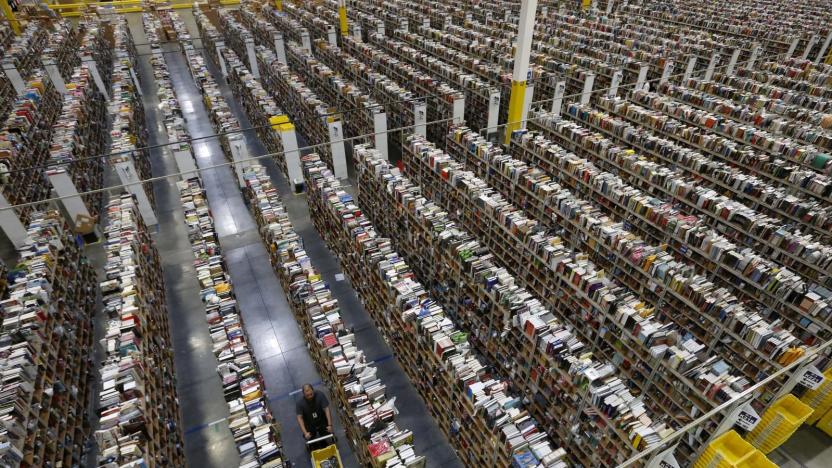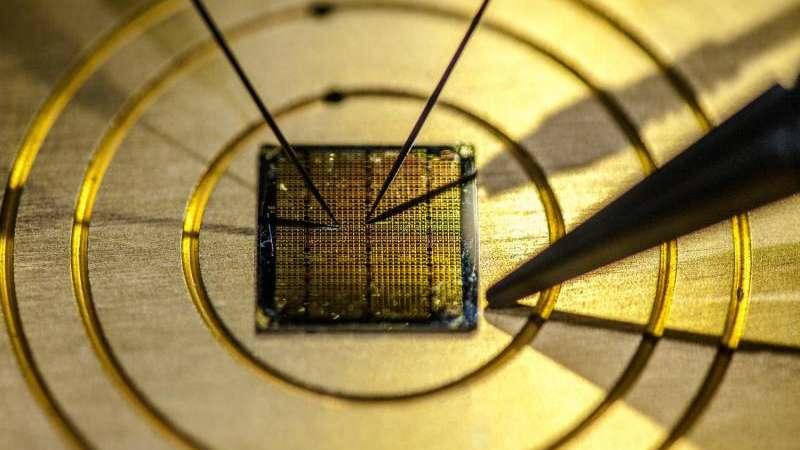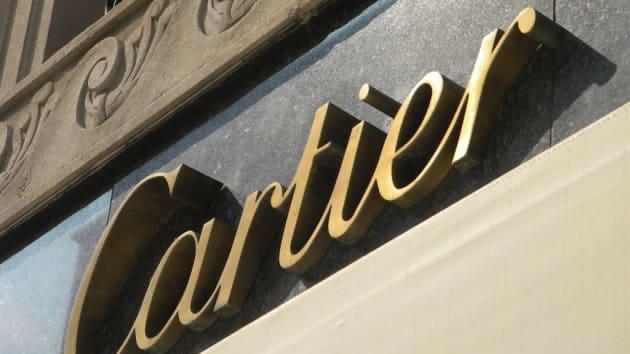counterfeiting
Latest

DoJ charges 14 people in $6 million counterfeit iPhone and iPad scheme
Scammers are continuing to cause problems for Apple, submitting counterfeit iPhones under warranty and getting them replaced with genuine devices. The US Department of Justice recently unsealed a federal grand jury indictment against a China-based group which has allegedly committed fraud and money laundering in a scheme using counterfeit Apple products.

Amazon will let brands issue takedown strikes on fake listings
From sky-high fees for merchants selling big brands to a product registry, Amazon has used all the tools at its disposal in its ongoing war on counterfeits. But the fakes keep coming. Now Amazon is putting more power in the hands of brands as part of a new anti-counterfeiting program dubbed "Project Zero."

Researchers use quantum physics for counterfeit detection
Scientists from Lancaster University have developed a foolproof anti-counterfeiting measure using a combination of quantum physics and smartphone technology. Previously, the team created unique atomic-scale IDs based on irregularities found in 2D materials such a graphene -- irregularities which, unlike current anti-counterfeiting technology such as holograms, are impossible to clone. Quantum physics amplifies these irregularities and, once turned into a tag, makes it possible to "fingerprint" objects.

High Court forces UK ISPs to block websites selling fake luxury goods
Her Majesty's High Court of Justice has served as the stage for several high-profile cases in recent years that've resulted in UK ISPs being forced to block certain nefarious websites. Typically, these have involved entertainment giants that want to make it harder for illegal file-sharing sites like the infamous Pirate Bay to connect with their audiences. But now, ISPs have been given a new target: websites selling counterfeit goods. Said to be the first ruling of its kind in Europe, the High Court has today ordered that Sky, BT, Virgin, EE and TalkTalk -- which collectively provide 95 percent of all UK broadband -- must block a handful of websites that sell fake versions of products made by the likes of luxury brands Cartier and Mont Blanc.

Speck sues to combat counterfeit iPhone cases
The iPhone case business is big; so big, in fact, that a number of manufacturers are having problems with counterfeit cases being sold as their own products. We've previously heard of counterfeit Mophie battery cases, and OtterBox just recently announced that it has been battling bogus copies of its protective cases. Now Ina Fried at All Things D reports that Speck Products is suing a Utah company that has been selling fake Speck cases. The company that is the target of the Speck action is Katinkas USA. Speck has filed a multi-million-dollar lawsuit, accusing the company and its CEO of unfair business practices and copyright and trademark infringements. Not only is Speck asking for millions in damages, but injunctions against the company as well. The suit discloses that Katinkas USA was selling the faux cases on Amazon.com, with Speck actually purchasing goods through Amazon that were found to be counterfeit. At that point, Speck worked with Amazon to find the source of the cases and all the evidence pointed to Katinkas USA. Speck CEO Irene Baran says that the company wants to work with other accessory manufacturers to combat counterfeiting, remarking that "I think we could pool our resources and make a concerted effort."

WikiLeaks cables shed light on Apple's battle against counterfeit wares
Imitation may be the sincerest form of flattery, but if you're Rolex, Gucci or Apple, you probably aren't very interested in being flattered. Due to Apple's intense popularity, an entire industry has arisen that thrives on knocking off the iconic wares Designed in Cupertino. We've seen plenty in our day, and while it may strike some as if Apple's doing absolutely nothing to curtail the aping, a new WikiLeaks release confirms otherwise. According to an electronic memo from the Beijing embassy dated September 2008, Apple began to put obvious and deliberate pressure on China to act against businesses who were copying its wares a few years back. As it turns out, knocking out the knockoffs isn't exactly high on China's list of governmental priorities, and progress on halting the KIRF extravaganza has been sluggish at best. The entire story is quite the exhausting read, but it's worth delving into if you're curious -- per usual, you can get educated in the links below.

Two men arrested in Ireland for selling fake Wii consoles
In Northern Ireland, a pair of men were apparently selling counterfeit Wii consoles (no, not the Vii). When searching a car in the New Lodge Road area of Belfast, police discovered several counterfeit consoles. The men, aged 19 and 22, were then detained by police.We'd just like to take this moment to warn that it could happen to any of you. If you're still desperate for a console (you should be able to track one down at a store by now, if you check early enough every day, we would think) and using services like craigslist or eBay, take caution. The person selling the Wii could be trying to pull the wool over your eyes.

Kodak to use anti-counterfeiting measures on camera batteries
Counterfeit batteries and chargers are a legitimate problem for electronics manufacturers -- faulty components tend to go up in (literal) smoke, and have even caused deaths -- so we can totally see why Kodak has decided to join Nokia and NEC in decided to employing an anti-counterfeiting system in its digital camera batteries. The system, called TRACELESS, uses invisible markers that can be mixed directly into thermally-printed barcode labels, and can only be detected by handheld Kodak readers. Apparently Kodak's already deployed the system in the pharmaceutical, wine, and cosmetics industries, and the results seems to have inspired a little cockiness -- Philip Faraci, Kodak's president, says counterfeiters should simply stop tying to replicate Kodak's batteries, "because [they] simply won't be able to do it." That kind of confidence has apparently convinced Sanyo to license out the tech for its cams as well, but Kodak hasn't said anything about legitimate third party accessory manufacturers -- which has us a little worried, to be sure.

DVD pirates put out hits on Lucky and Flo the crime dogs
If you thought that IP piracy was all fun and games (and cheap movies and software), think again, because the war on counterfeiting just got a lot more dangerous, with Malaysian "syndicate bosses" today announcing a reward for the heads of two real-life McGruff's. You probably remember black labs Lucky and Flo as the Federation Against Copyright Theft's latest weapons in tracking down bogus discs -- they're trained to sit when they smell plastic -- and their careers were apparently going pretty well until they helped bust a $3 million bootleg ring this week only to draw the ire of whomever just lost a major source of shady income. With an undisclosed contract now threatening their very lives, the two canine Columbos have reportedly been moved to a Cheney-like undisclosed location where security has been "beefed up" to ensure their safety as well as future contributions to Team MPAA. Because, as we all know, police dogs do have a tendency to keel over just days shy of retirement, and these hits sure aren't gonna help that much.

Pirating Gangs of London supports gang violence
As evidenced by the numerous YouTube videos of people playing "complete" versions of the upcoming Gangs of London, a leaked ISO of the game has been making the rounds on the internet. Stealing is wrong, and Sony spokesperson David Wilson wants you to remember that: "We are wholly opposed to game piracy. Even if people have no sympathy for games developers losing money (though in the end that damages our industry and hurts gamers) - there are proven links that exist between counterfeiting and organised crime and that has some serious consequences (and victims) that people should give due consideration."There you have it. Downloading an illegal copy of Gangs of London may, in fact, help criminals. But, if Senator Lieberman is right, playing games like Gangs of London will turn you into a criminal anyways.[Thanks, steve; via GI.biz]







